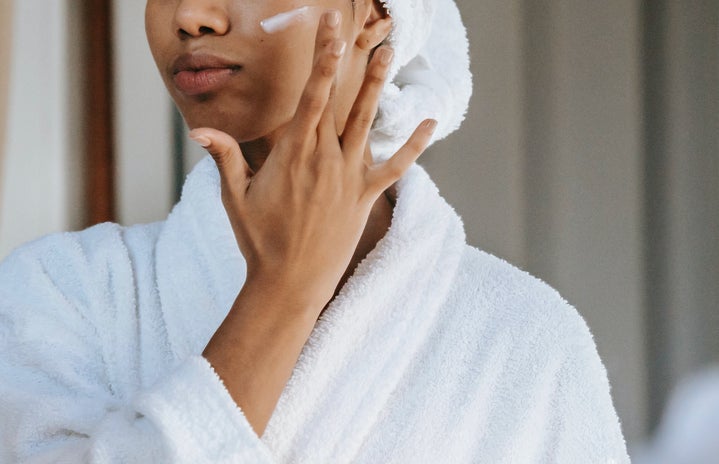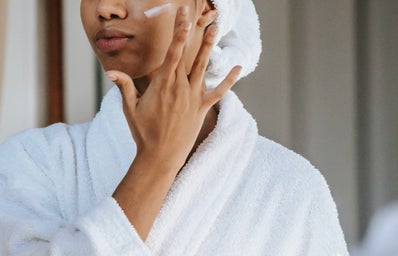The world of skincare can be confusing. With so many labels, skin concerns, and ingredients, it can be challenging to figure out which product is right for you. For facial sunscreens, the same rule applies, and the process can get overwhelming.
No matter the forecast, sunscreen is the one step you should never skip in your skincare routine. Applying and reapplying SPF protects your skin from the sun’s powerful ultraviolet rays. Applying SPF daily also helps prevent premature aging, such as wrinkles and dark spots, and aids in minimizing the risk of skin cancer.
Before choosing the best sunscreen for your skin type, there are a few things to keep in mind about SPF altogether, especially when it comes to your face:
1. Must Be Broad Spectrum:
“Broad Spectrum” ensures your sunscreen protects you from both UVA and UVB rays. SPF 30+ is recommended.
2. Two Tbsp. Rule:
Make sure you’re applying two tablespoons worth, enough to fill a shot glass, of SPF on your face.
Once you’ve guaranteed your sunscreen covers these two fronts, the next decision is the formula. There are two main types: mineral and chemical SPFs.
Mineral sunscreens are made with zinc oxide or titanium dioxide and work by sitting the skin and deflecting UV rays. Chemical sunscreens, made with ingredients like oxybenzone or avobenzone, work by absorbing UV rays.
1. Mineral Sunscreens:
If your skin is sensitive, dry, or acne-prone, mineral sunscreens are typically the best choice. They’re considered to be more “natural” and safe for coral reefs!
2. Chemical Sunscreens:
If you have darker skin or prefer little to no white cast, chemical sunscreens are your better option. They’re more transparent and sink into the skin as opposed to sitting on it!
Ultimately, your choice for SPF also comes down to personal preference. Mineral sunscreens tend to be more noticeable as they are distinctly greasier and leave behind the traditional SPF white cast.
Chemical sunscreens, on the other hand, are much less obvious and leave behind little residue. Because of this, they are the more comfortable option to wear daily or sit under makeup.
No matter which option you choose, remember that wearing SPF every day is not only an anti-aging staple, but also a preventative choice healthwise.
Follow DANIELA on Instagram.



